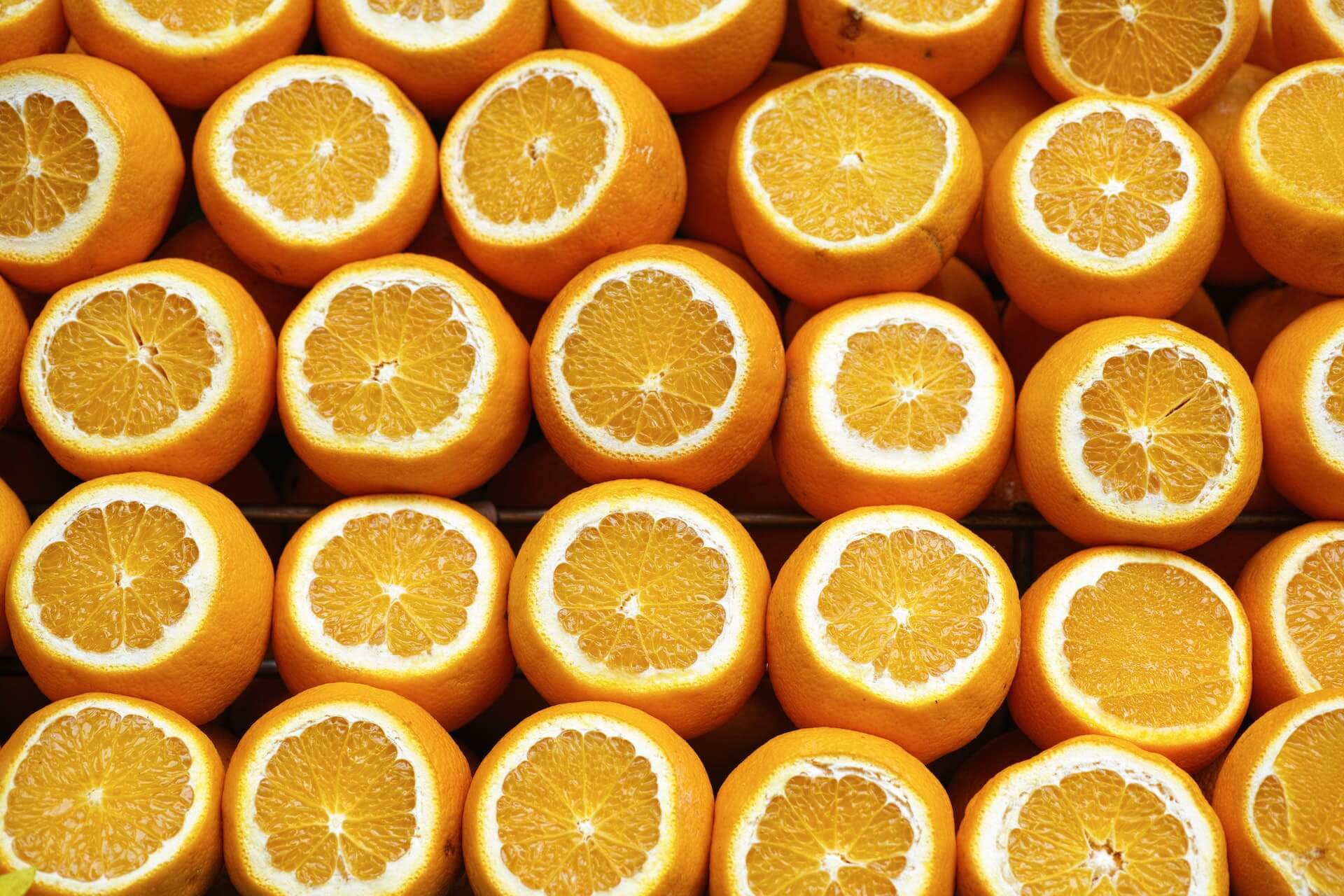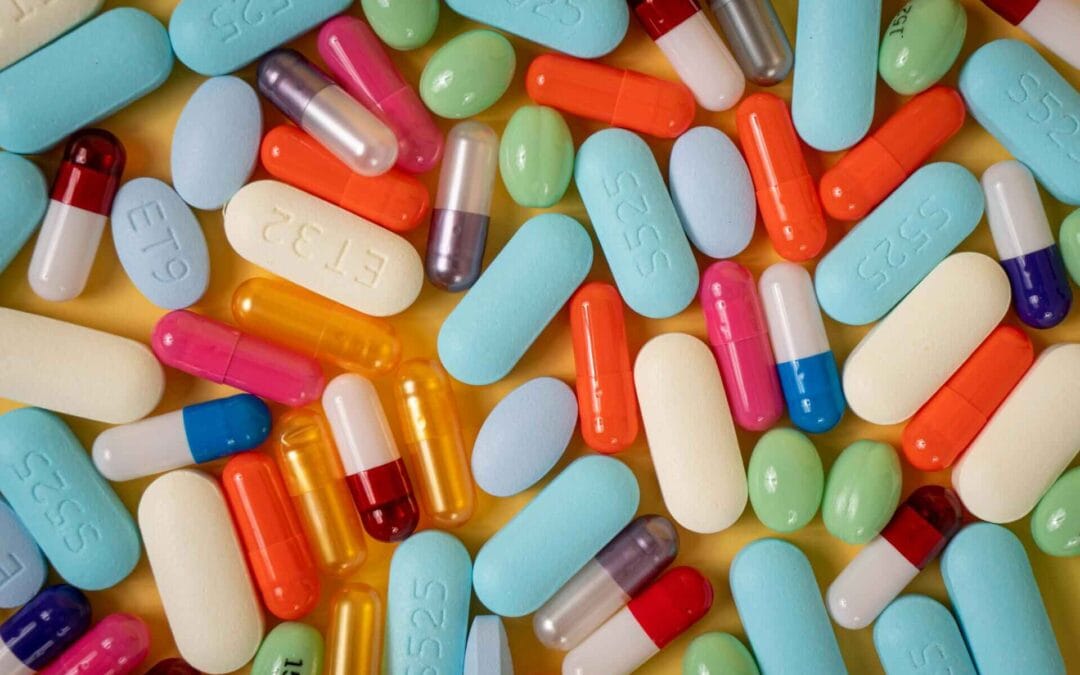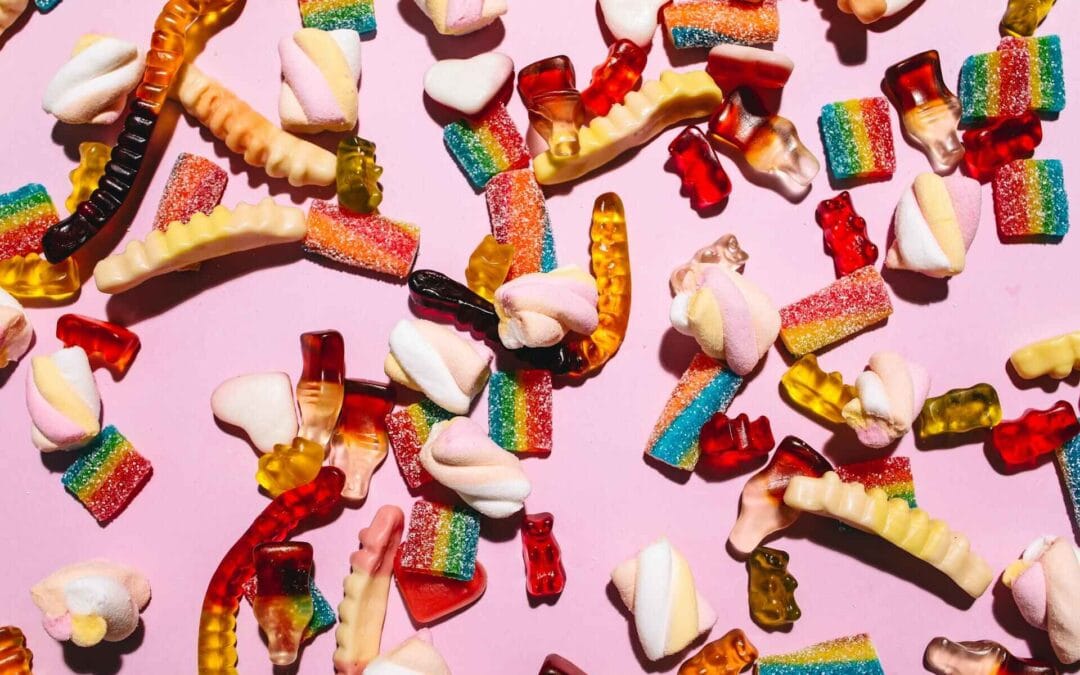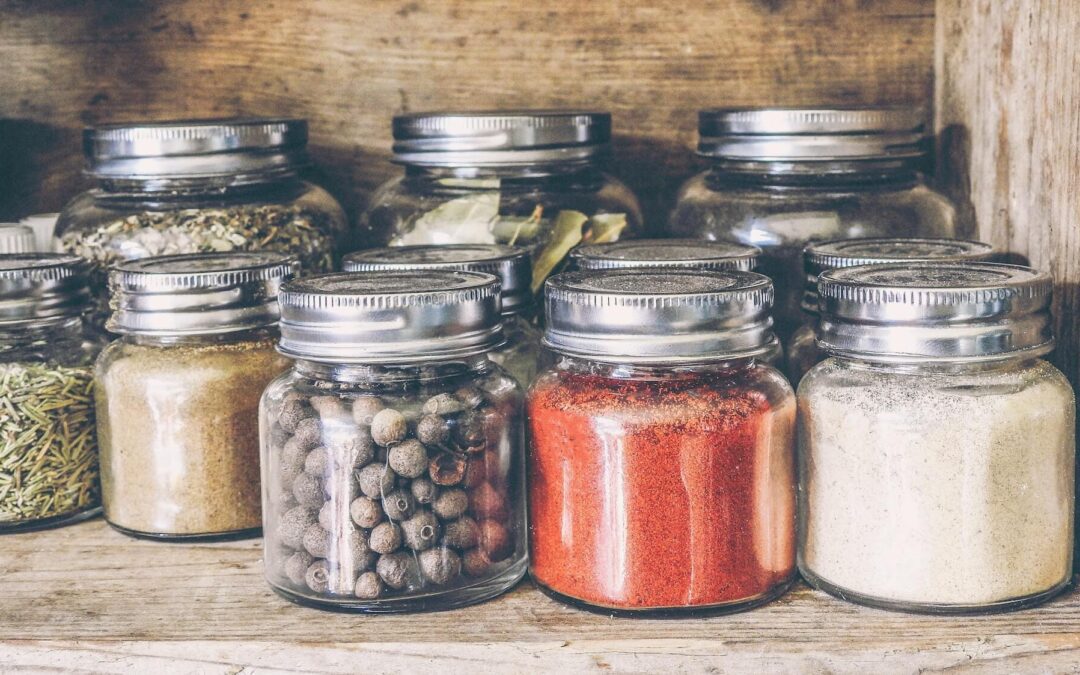The low-carb ketogenic diet, when done correctly, can enhance several areas of your health. Unfortunately, some first-time keto dieters neglect essential micronutrients, resulting in unwanted side effects such as muscle cramps, headaches, and low energy levels.
This article will teach you all you need to know about vitamin and mineral supplements, including why they are essential, which ones your body needs, and healthy food sources that include them.

Why Micronutrients Are Important on the Keto Diet
Regardless of your diet, optimizing your daily intake of vitamins and minerals — collectively known as micronutrients — is critical. Each micronutrient has a distinct purpose, all vital to your body’s healthy functioning and survival.
Furthermore, those on low-carb diets should be especially cautious to avoid deficiencies, which can occur for two reasons:
The ketogenic diet removes whole food categories such as starchy vegetables, cereals, and most fruits. This can be difficult for those who are used to receiving their nutrition primarily from high-carbohydrate diets.
Two, your body depletes its glycogen stores and enters ketosis, causing you to lose more water through pee than usual. You also excrete electrolytes, including salt, potassium, and magnesium, during this process.
Meeting your micronutrient demands, rather than simply your macronutrient needs, can assist in reducing keto flu symptoms. And, more significantly, to obtain as many health benefits from this manner of eating as possible.
Regardless of your objectives or activity level, vitamins are necessary for the keto diet’s success.
The good news:
Several keto-friendly meals will match your nutritional requirements. First, determine which micronutrients you still need to include and devise a meal plan (don’t worry, it’s easier than it sounds). Supplementing also ensures that you acquire the correct dosages comfortably and efficiently.
A high-quality supplement, like an electrolyte or microgreens powder, will quickly raise your micronutrient levels as you acclimate to a nutrient-dense keto diet.
Keto Diet Vitamins You Need
Here is a list of vitamins and foods that can help you stay healthy on a low-carb diet.
1. Vitamin A
Vitamin A is a fat-soluble vitamin that helps with eyesight, growth and development, and immune system support. There are two kinds of vitamin A:
- Preformed vitamin A is only present in meat, liver, fish, poultry, and dairy products.
- Plants that contain provitamin A include broccoli and cantaloupe.
Adult men require 900 mcg of retinol activity equivalents (RAE) daily, whereas women require 700 mcg [1]. To meet this need, you might eat three giant boiled eggs or a four-ounce king mackerel fillet.
Vitamin A insufficiency is uncommon in the United States but widespread in poor nations. Inadequate vitamin A intake can result in dry skin, eyes, and night blindness.
2. B Vitamins
There are eight distinct forms of B vitamins, which are referred to together as B complex:
- Thiamin (Vitamin B1). B1 is required for the breakdown of energy foods. This mechanism is critical for organs requiring continual energy, such as the brain and heart. Men should take 1.2 mg daily, while women should take 1.1 mg daily [2].
- Riboflavin (Vitamin B2). It aids in producing red blood cells and promotes healthy skin and eyes. It can occasionally be used as an antioxidant. Some research suggests that supplementation may help with migraine headaches [3].
- Niacin (Vitamin B3). This vitamin is responsible for carbohydrate, lipid, and protein metabolism. It is also required for the synthesis of sex and stress hormones. According to one study, niacin may help prevent heart disease by boosting HDL cholesterol [4].
- Pantothenic Acid (Vitamin B5). It, like all B vitamins, transforms food into energy. Did you know that? Gut flora produces pantothenic acid in small amounts, so you still need it from your food.
- Pyridoxine (Vitamin B6). Vitamin B6 is required for optimal immune system function. Ensuring you have enough of this vitamin in your diet helps to protect your body against illnesses.
- Biotin (Vitamin B7). This vitamin comes from the Greek word “biotos,” which means “life.” B7 is required for nutrition processing in the body. Although it is frequently marketed as a supplement to improve hair and skin health, little evidence supports this.
- Folate (Vitamin B9). Folate is necessary for red blood cell production and proliferation. In its synthetic form, Folic acid can help prevent neural tube abnormalities in newborns during pregnancy.
- Cobalamin (Vitamin B12). This vitamin promotes a healthy neurological system. It is present mainly in animal products such as eggs, liver, fish, and dairy [5].
Deficits in specific B vitamins can causedigestiven, muscle loss, a weaker immune system, skin and hair problems, and depression.
The good news is that B vitamins are naturally found in various nutritious whole foods. The following are the most excellent low-carb options:
- Meat
- Poultry
- Fish and shellfish
- Eggs and dairy
- Dark green vegetables like collards, broccoli, and spinach
- Nuts and seeds
To receive some B vitamins, for example, eat 3 oz of bone-in pork chop, which contains 0.4 mg of vitamin B1 and 0.6 mcg of vitamin B12.
3. Vitamin C
Vitamin C, like vitamins A and E, functions as an antioxidant to protect your cells from harm. Furthermore, vitamin C is required to synthesize collagen, the most abundant protein in your body that provides structure and strength. Moreover, it improves skin elasticity and hydration while slowing skin aging [6].
Many believe the only way to receive vitamin C is through citrus fruits. However, there are other excellent food sources. They are as follows:
- Brussels sprouts
- Spinach
- Broccoli
- Cauliflower
- Bell peppers
- Kale
- Fish roe
- Oysters
Smokers, persons recuperating from surgery, and pregnant or nursing women require more vitamin C than others.
The recommended daily dose for males is 90 mg, and 75 mg for women, which equates to around 1 cup of broccoli and 4 oz of fish roe [7].
4. Vitamin D
Vitamin D is often known as the “sunshine vitamin” since it is produced in the skin following exposure to sunlight. Unfortunately, around 1 billion individuals worldwide suffer from vitamin D insufficiency, particularly older people and those who are obese [8].
Your body needs vitamin D for a variety of reasons. It keeps your bones and muscles healthy by regulating calcium and phosphorus intake. According to one double-blind trial, vitamin D supplementation benefits weight loss [9].
If you need more clarification about your vitamin D levels, you may undergo a blood test to see if they’re within the normal range.
To receive dietary vitamin D, make sure your ketogenic diet meal plan contains the following foods:
- Fatty fish (trout, sardines, salmon, and mackerel)
- Egg yolks
- Liver
- Red meat
- Mushrooms
Responsible sun exposure throughout the spring, summer, and early fall (or year-round if you live in a high-UV zone like the tropics) is also a powerful strategy to boost vitamin D levels.
The amount of vitamin D you need depends on how much sun you get, but the National Institutes of Health (NIH) advises 15-20 mcg (600-800 IU) per day for adults [10].
You may quickly achieve this requirement by eating 3 oz of rainbow fish or 1 cup of white mushrooms.
5. Vitamin K
Vitamin K is required for blood clotting and bone strength [11]. While it is uncommon to become deficient in this vitamin, lacking it can increase your risk of heart disease and osteoporosis.
Vitamin K is available in two forms: K1 and K2. K1 is mostly present in green leafy vegetables, whereas K2 is found in animal products and fermented meals and is divided into two subtypes: MK-4 and MK-7. According to research, MK-7 is better absorbed by the body than MK-4 and does not require a large dosage to get its advantages.[12][13].
Fortunately, if you include a variety of leafy greens and meat products in your keto meal plan, you won’t be deficient in vitamin K. The following are some of the better examples:
- Swiss chard
- Brussels sprouts
- Spinach
- Hard and soft cheeses
- Ground beef
- Bacon
- Pork chops
- Eggs
- Liver
The standard guideline for men is 120 mcg per day and 90 mcg per day for women [14].
Here’s an example of how a basic dinner may quickly satisfy this requirement: To obtain 123 mcg of vitamin K, eat 1/2 cup of broccoli and 3 oz of chicken breast.
Keto Diet Minerals You Need
The following are essential minerals to consider when following the keto diet. Some are electrolytes, such as sodium, potassium, magnesium, and calcium, which your cells require to transmit an electric charge and properly function.
Because your kidneys flush them out faster when your insulin levels drop at the start of your diet, electrolytes are especially important for keto beginners (or those returning after a break).
1. Sodium
We are frequently urged to avoid taking too much salt due to the prevalent Standard American Diet. However, your body requires it more than ever on a low-carb, high-fat diet.
Because of increased renal losses, you should be cautious about consuming too little rather than too much salt.
Fatigue, muscular cramps, headaches, and heart palpitations are all symptoms of low sodium. Unless you have a medical condition that requires you to limit your salt intake, aim for a daily sodium intake of 3,000-5,000 mg [15].
Electrolyte pills help you replace lost sodium. Any electrolyte supplement you choose should be keto-friendly (remember, many aren’t, such as Gatorade with its high sugar content). Include the following foods in your diet whenever you need a salt boost:
- Sea salt for seasoning food
- Bouillon cube dissolved in hot water
- Keto-friendly beef jerky
- Salted pumpkin seeds
- Canned sardines
For example, one can of Atlantic sardines contains 282 mg of sodium, but one big piece of beef jerky contains 416 mg of salt.
2. Potassium
Potassium, another crucial element, aids in fluid equilibrium and the efficient functioning of your neurons and muscles.
High blood pressure, salt sensitivity, and an increased risk of kidney stones are all repercussions of insufficient potassium. In certain situations, it can cause heart failure in those with cardiovascular disease [16].
The daily potassium consumption recommended for men is 3,400 mg and 2,600 mg for women. On the ketogenic diet, however, you should aim for 3,000-4,000 mg per day [17].
To avoid a potassium deficit, use the following healthy potassium sources in your keto diet plan:
- Dark chocolate (with at least 70% cacao solids)
- Bone broth
- Leafy greens (swiss chard, spinach, bok choy, kale)
- Avocados
Eat 1 cup of diced avocados (728 mg sodium) for a healthy, high-energy snack.
3. Calcium
Another electrolyte that might be drained during ketosis is calcium. Its function is to keep bone development and strength going. Your bones and teeth contain 99% of your calcium.
It also aids in regulating blood pressure, coagulation, and nerve function. A widespread myth is that you need milk to achieve your body’s daily calcium requirements (between 1,000 and 1,200 mg daily)[18].
However, calcium can also be obtained from the following low-carb, high-fat whole foods:
- Cheddar cheese
- Sardines
- Almonds
- Chicken
- Green vegetables
You can receive 668 mg of calcium in one nutritious meal with 3 oz of cheddar cheese, 8 oz of chicken breast, and ½ cup of broccoli.
Some studies have also found that eating enough calcium lowers your risk of heart disease [19][20].
4. Magnesium
Magnesium, the fourth most prevalent element in your body, is necessary for heart rhythm, energy production, and DNA protection.
What if you don’t consume the recommended amount? You are more prone to develop inflammation, which has been linked to illnesses such as heart disease and cancer [21]. Low magnesium consumption has also been associated with high blood pressure, arrhythmia, restless leg syndrome, and neurological issues [22][23][24].
On the keto diet, aim for 300-500 mg per day [25]. When it comes to dietary sources, consume the following magnesium-rich foods:
- Oysters
- Green veggies
- Dark chocolate (70-95% cocoa)
- Pumpkin seeds
- Salmon
- Chicken breast
- Ground beef
Here’s a tasty way to acquire 138 mg of magnesium daily: Consume 1 oz of dark chocolate and 1 oz of pumpkin seeds.
Those interested in magnesium supplements should know that various forms are available depending on your needs (other than meeting your daily magnesium requirement). For example, magnesium glycinate and magnesium chloride may aid with depression and constipation [26][27].
5. Zinc
Because zinc is essential for wound healing, protein synthesis, immune function, and glucose metabolism, it is found in nearly all cells in your body.
There’s no need to be concerned about a zinc shortage if your diet comprises the following foods:
- Red meat
- Seafood
- Poultry
- Dairy
- Mushrooms
- Veggies
Individuals who follow a plant-based diet (meat is a rich source of zinc), alcoholics, and individuals with digestive issues may require extra zinc.
Zinc deficiency impairs the immune system and causes various issues, such as poor wound healing, diarrhea, and a diminished sense of taste or smell.
The recommended daily dosage for men is 11 mg, and for women is 8 mg [28]. This is how it appears: A 3-ounce dish of beef chuck roast or two oysters.
6. Phosphorus
Phosphorus is a critical component of the DNA and RNA structures. This mineral is also required by your body to digest carbohydrates and fats and help repair cells.
Phosphorus deficiency can cause anemia, anxiety, weak bones, disorientation, and respiratory difficulties. It can result in a coma in rare circumstances. Even on the keto diet, deficits are unusual; therefore, aim for 700 mg daily [29].
You may quickly satisfy this recommendation by using the following phosphorus-rich foods in your keto diet plan:
- Chicken and turkey
- Organ meats
- Pork
- Eggs
- Seafood
- Sunflower and pumpkin seeds
- Broccoli
Try this nutritious meal: 3 ounces of scallops with ½ cup of asparagus equals roughly 250 mg of phosphorus.
Take notice that calcium carbonate-containing antacids may inhibit phosphorus absorption in your body. Avoid using them for an extended period (more than 3 months) to avoid low phosphate levels.
The Best Source of Micronutrients: Food or Supplementation?
Eating a diverse range of keto-friendly whole meals allows you to acquire the micronutrients required to flourish. When nutrients are obtained through whole foods, they are more powerful and more straightforward to digest. Whole foods also include phytonutrients, natural substances with antioxidant and anti-inflammatory capabilities.
Supplementation, on the other hand, can be highly advantageous to persons who:
- Are older (at least 50 years old)
- Having difficulties obtaining healthful foods
- Have a medical condition that interferes with nutritional absorption.
- Follow a keto sub diet or variant that removes additional food categories (for example, vegetarian keto or carnivore keto with solely beef).
- Don’t get enough sun – vitamin D needs it.
Can I Take a Multivitamins on Keto?
With a ketogenic diet that contains a broad range of foods, you will only need a multivitamin if you’re not receiving enough, owing to your age, ailment, or living scenario. A certified dietician or doctor can advise you on the best action.
Will Supplementing with a Multivitamin or Mineral Kick Me Out of Ketosis?
Because vitamins and minerals are pure compounds, they do not interfere with ketosis. On the other hand, other ingredients in a mineral or multivitamin supplement may affect your blood glucose levels.
On the nutrition information label, watch for extra carbohydrates and sugars. They’re often found in flavored drink supplements and candy.
Perfect Keto’s tasty, sugar-free daily electrolytes and micro greens powder combined with MCTs is a high-quality keto supplement that supplies essential micronutrients at any point of your health journey.
More Ketogenic Diet Supplements to Consider
Aside from vitamins and minerals, certain supplements can help your body stay in ketosis and alleviate the keto flu symptoms. You might choose to include the following alternatives in your diet plan:
1. MCT Oil
MCTs, or medium-chain triglycerides, are naturally occurring fatty acids in coconut oil. MCT oil reduces the time required to enter ketosis by increasing beta-hydroxybutyrate (BHB) ketones [30]. MCT oil also increases satiety and aids in weight reduction.
Take MCT powder instead if you want a more portable form of MCT that is easier on your digestive system.
2. Exogenous Ketones
When you limit your carbohydrate intake, your body uses stored fat converted into ketones. Another option to increase your ketones is to take them as a drink or tablet. Your energy will increase, and you will be less likely to have keto flu symptoms.
3. Omega-3 Supplements
If you don’t consume fatty fish regularly to acquire omega-3 fatty acids for brain and heart health, you may need to take a supplement. Fish oil and krill oil enhance the ratio of omega-6 to omega-3 fatty acids in your body.
4. Digestive Enzymes and Probiotics
Changing your macronutrients (lowering carbohydrates and increasing fat) might strain your digestive system. Some people who go on Keto have indigestion, acid reflux, diarrhea, and constipation. Consider taking digestive enzymes and probiotics to aid digestion and maintain a healthy gut.
The Bottom Line
Just because you’re consuming less carbohydrates than usual doesn’t imply you’ll be deficient in vitamins and minerals. By paying close attention and fulfilling your micronutrient consumption objectives, you may flourish and survive the first few weeks of Keto.
At all times, try to consume minimally processed or unprocessed foods. Then, take a keto-friendly supplement to make up for any nutrient deficiencies. Our top keto diet vitamins and minerals suggestions are an electrolyte powder or a microgreens powder that is pleasant and simple to digest.







0 Comments